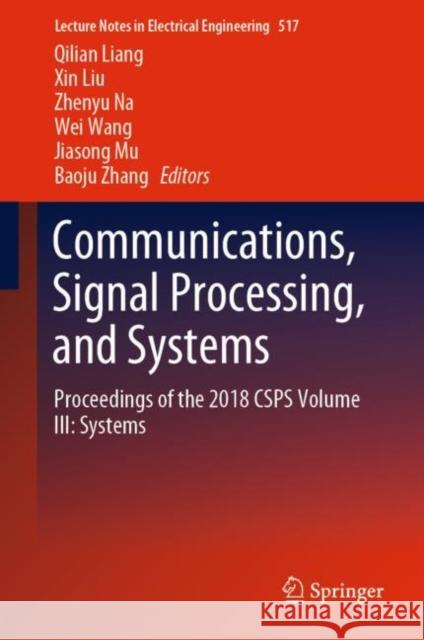Communications, Signal Processing, and Systems: Proceedings of the 2018 Csps Volume III: Systems » książka
topmenu
Communications, Signal Processing, and Systems: Proceedings of the 2018 Csps Volume III: Systems
ISBN-13: 9789811365072 / Angielski / Twarda / 2019 / 1219 str.
Communications, Signal Processing, and Systems: Proceedings of the 2018 Csps Volume III: Systems
ISBN-13: 9789811365072 / Angielski / Twarda / 2019 / 1219 str.
cena 885,61
(netto: 843,44 VAT: 5%)
Najniższa cena z 30 dni: 848,19
(netto: 843,44 VAT: 5%)
Najniższa cena z 30 dni: 848,19
Termin realizacji zamówienia:
ok. 22 dni roboczych.
ok. 22 dni roboczych.
Darmowa dostawa!
Kategorie:
Kategorie BISAC:
Wydawca:
Springer
Seria wydawnicza:
Język:
Angielski
ISBN-13:
9789811365072
Rok wydania:
2019
Wydanie:
2020
Ilość stron:
1219
Oprawa:
Twarda
Wolumenów:
01











